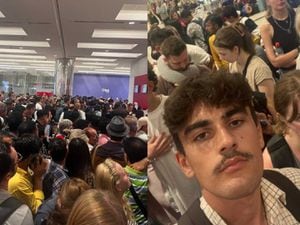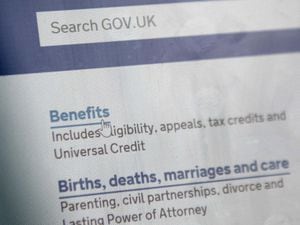Coronavirus response affected by inequality in web access, foundation warns
The foundation created by World Wide Web inventor Sir Tim Berners-Lee said the Covid-19 pandemic highlights why online access should be a basic right.

The global response to the coronavirus outbreak is being held back because almost half the world’s population is still offline, a web advocacy group has warned.
The Web Foundation, established by World Wide Web inventor Sir Tim Berners-Lee, has warned that as a result digital tools such as contact tracing aimed at slowing the spread of Covid-19 will only have limited impact in some places.
The group campaigns for universal internet access to be considered a basic right.
In its latest report, it said the current crisis and subsequent lockdown – with millions working and studying from home – underlines the importance of internet access.
Adrian Lovett, president of the Web Foundation, said: “The web is a critical lifeline. And yet billions are not connected as we fail to meet these targets.
“While this crisis affects everyone, those without the tools to protect themselves and their families are more vulnerable to the virus and its painful economic and social impacts.
“It’s clearer than ever that the web is a basic right, not a luxury. Efforts to tackle Covid-19 must include getting as many people connected to the internet as quickly as possible.
“This global pandemic has cruelly exposed the extent of the digital divide. Governments and companies must work urgently to accelerate progress to ensure that everyone, everywhere has the opportunity to get online.”
The Web Foundation warned that because most people who are unable to get online were in low and middle-income countries, as Covid-19 cases in those countries rise, the lack of digital resources could hinder steps to stop the spread.
Digital tools such as contact tracing apps, which use Bluetooth and other technology to alert smartphone users when they have come into contact with someone who has tested positive for the virus, are seen by many experts as a vital tool in slowing the outbreak and helping countries out of lockdown.
The group’s latest report also says the world is set to miss a UN target as part of its Sustainable Development Goals, which hoped to reach “universal access” to the internet in the least developed countries by 2020.
The Foundation claims its analysis projects that by the end of this year, only 23% of those in the least developed countries will have internet access, falling well short of the 85% target the UN uses as a reference for universal access.
It also says a second target, from the UN’s Broadband Commission to get 75% of people globally and 35% in the least developed nations access to a broadband connection by 2025, will also be missed.
The Web Foundation says it projects that only 70% globally and 31% in the least developed nations will have such access by that target date.





